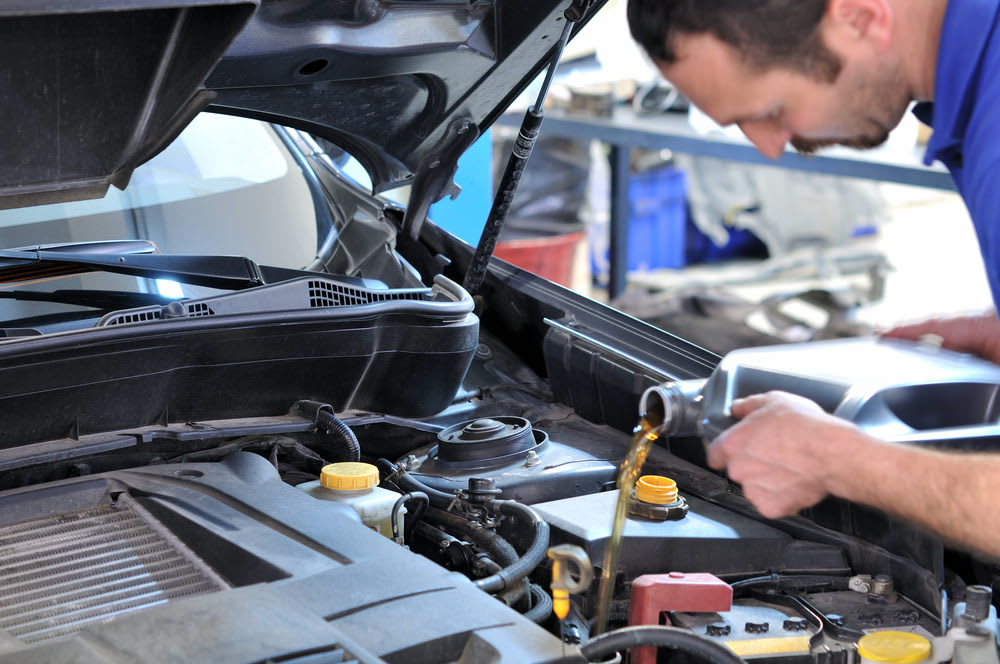

Every car owner hears about best practices for keeping his or her vehicle in good shape. Whether the advice comes from friends, family, or the car manufacturer, many maintenance suggestions for fuel efficiency, engine power, and overall vehicle longevity trickle down the exhaust pipe. Some tips suggest money-saving options or performance-enhancing practices. Yet, not everything passed along to car owners is necessarily true. Read on to find out 5 car maintenance myths that are actually false:
1. You need to change your oil every 3,000 miles
Once upon a time, this was the case, and many oil companies and lube shops still push this idea. Now, most cars made within the last decade or so require oil changes every 5,000 to 7,500 miles depending on the manufacturer. The better chemical composition and extensive use of synthetic oils, as well as superior engine design, have improved enough to allow for longer intervals between oil changes. Schedule your oil changes based on your owner’s manual recommendations. Otherwise, you’re pouring money down the drain.
2. Premium fuel is better for your car and will increase its performance
Unless your vehicle has a high-compression and performance engine that runs hotter than most others, regular gasoline works fine. The cheaper 86 octane fuel still has to meet quality standards — it won’t actively harm your car’s engine. Higher octane gas includes cleaners and protectants to keep turbo-charged engines in better shape — think sports car types — and is more resistant to engine knocking.
Typically, cars that require more expensive, premium gas cost more to purchase themselves. Regular gas should suit the average-priced vehicle. Check your owner’s manual to see what your car manufacturer suggests.
3. Vehicle servicing at independent repair shops will void your warranty
Your warranty is valid until the expiration date, regardless of where you service your car. Dealerships will imply that you can only go to them, but actually requiring you to do so is illegal. Any maintenance covered under your warranty can be performed by any auto repair shop — just save your receipts to prove what was done and how much it cost. Any maintenance specified in the owner’s manual and done according to the prescribed schedule should not void your warranty.
4. Warm up your car’s engine before driving in the cold
Engine parts do need to warm up to operate fully, but modern engines warm up faster while you’re actually driving. Additionally, your wheel bearings and transmission need movement to completely warm up. Running your car before driving in colder weather has no benefit other than heating you up inside the car. You’ll achieve the best fuel mileage and performance through usage. Idling the car in your driveway uses gas to go nowhere — essentially wasting money and fuel.
5. You should replace all four tires at the same time
Replace individual tires as needed so long as they’re the same brand, model, and size as the rest of your tires. You can switch them out whenever. Just make sure to have them rotated at every other oil change to maximize their life.
Additionally, you don’t necessarily need to purchase a new tire if you puncture one. If the puncture damaged the sidewall or is greater than a quarter-inch in diameter, a mechanic can usually plug the hole. The patch will keep moisture out of the steel belts and restore your tire’s airtightness.
6. Wash your car with dish or laundry soap
While this may sound like a nice way to save money, washing your car with dish soap or laundry detergent actually damages the car’s wax finish. Instead of contributing to paint chipping off and rust marks, pay a little more for car-wash liquid. It’s designed to not strip away the protective wax.
7. A battery will recharge following a jump start after a short period of driving
It takes hours of driving to bring a battery that had to be jumpstarted back to full charge — especially in colder temperatures. Car accessories like heated seats, the radio, and lights pull a lot of power from the alternator, leaving little left for recharging a battery.
It’s best to drive around for several hours to bring your car’s battery back to a full charge. You can even have it load tested at a gas station if need be. Brief, minute-long drives might still leave you with a dead battery the next time you try to turn on your car.
8. Transmission fluid should be flushed every 50,000 miles
Though often recommended every 50,000 miles, most modern vehicles use a transmission fluid with a “long life.” It’s engineered to last for up to 100,000 miles or even the lifespan of the car. This varies between vehicles, so always refer to your vehicle manufacturer’s recommendations for transmission flush intervals.
9. Roll down the windows instead of using the air conditioner for better fuel economy
In actuality, rolling the windows down or blasting the AC makes little difference toward fuel efficiency. Turning on the air conditioning consumes fuel more quickly, true; however, rolling down the windows increases wind resistance. The car will need to burn slightly more fuel to compensate for its disrupted aerodynamic design.
The overall impact of both AC or rolled-down windows on fuel efficiency is minimal — neither really benefits over the other.
10. Refueling in the morning saves you money on gas
Gasoline expands with heat, so a common belief persists that pouring warmer fuel into your tank means you’re getting less fuel. Fuel pumped in the morning would, in theory, be cooler and allow you to get more into your tank for less cost.
Contrary to this myth, gas is usually stored underground. It stays insulated from significant temperature changes, so the time of day you refuel does not actually make a difference toward the amount of fuel you’re receiving.



